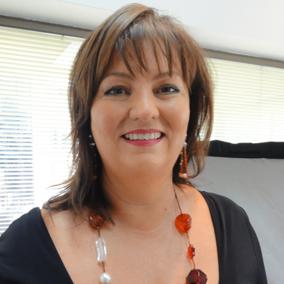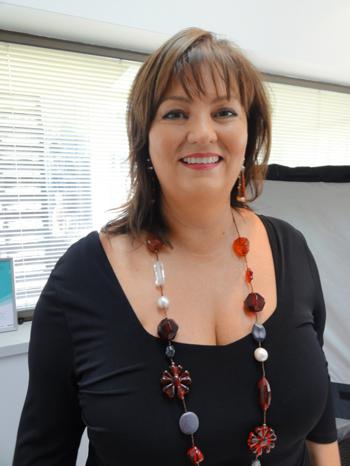An interview about social isolation with a woman of influence

 The concept of ‘social isolation’ adds a new layer of meaning to our understanding of wellbeing. It encourages us to recognise the complexity to a person’s mental health, as it can be influenced by a variety of internal and external factors. An individual may experience ‘social isolation’ if they lack community connectivity, feel alienated by society or have limited meaningful relationships. In essence, their basic human need to be connected, accepted and valued by others is unfulfilled. Consequently, this deteriorates their self-worth and feelings of loneliness can develop, resulting in lived negative mental health experiences.
The concept of ‘social isolation’ adds a new layer of meaning to our understanding of wellbeing. It encourages us to recognise the complexity to a person’s mental health, as it can be influenced by a variety of internal and external factors. An individual may experience ‘social isolation’ if they lack community connectivity, feel alienated by society or have limited meaningful relationships. In essence, their basic human need to be connected, accepted and valued by others is unfulfilled. Consequently, this deteriorates their self-worth and feelings of loneliness can develop, resulting in lived negative mental health experiences.
Anna Shepherd (pictured), awardee of the Australian Financial Review’s ‘100 Women of Influence’ list and CEO of Regal Home Health (an organisation that offers home healthcare nursing services in NSW) is utilising her leadership position to address this issue. Throughout her career she has continually challenged and sought to improve the healthcare system in Australia and she is now channelling this drive to start discussion about the role of CEO’s in preventing social isolation in society. This issue is personal to Anna, who has witnessed family members, friends and colleagues be subjected to social isolation, for reasons varying from social alienation due to mental health issues to community detachment as a result of aging.
In an interview with WayAhead she shed light on this topic, from her perspective as a businesswoman and loving friend and family member.
Interviewer: When did you realise social isolation was an issue people faced?
Anna: I think social isolation for me is something that became evident in running a business where we’re looking after people who are unwell, ageing or disabled in their home. Seeing how a wife looking after a husband can be socially isolated or children looking after their parents and how that impacts on their social interactions. Of course there’s so many community programs out there that you can access but it’s not typically something that when you’re in the headspace of being overstretched that you have the will to access the support that governments and organisations offer to you, from what I’ve observed.
Interviewer: Are there any personal experiences you have had that have caused you to be passionate about this issue?
Anna: My mother retired at 70, she’s 82 now and still a vibrant woman. She was the founder of our company and so that was her identity in the world. I really saw that transition from her being the Director of Nursing for a home health care company to being a retired person. The inference of being a retired person is that you’re off playing golf everyday, there’s no sort of length or breadth of diversity in how you find purpose in what you do every day. For somebody who ran a purpose driven organisation I think that was very challenging. She found her purpose through establishing the Regal Knitters supporting the work of Wrap with Love, to date this has resulted in over 25,000 squares making up blankets who have been sent to those isolated all over the world. My mother has gone all over the country to find the best wool that she can find because she wants them to feel that love when they’re knitting. She brings so much love into everything she does. So that’s been a tremendous impact on people. This gives purpose to our patients and the broader community.
I think social isolation doesn’t have to be this person who is impoverished and old and isolated for people to feel socially isolated. I’ve seen it with my brother who had bipolar. Through the side effects of medication and through his depression and then of course his manic behaviour, people didn’t really want to be around that. He committed suicide 8 years ago. I think that people in our society, if they hear a diagnosis of bipolar or manic depression they sort of stand off.
I think programs that promote social inclusion help this. For instance, I’m a Friend of GROW and support them with marketing and strategy. What they do is they create environments where people with common illnesses can come together to support each other. I think that peer support is normalising.
Interviewer: Why is it CEOs and corporations responsibility to prevent social isolation?
Anna: From a business point of view, you’re engaging with so many different people and if everyone had a corporate social responsibility then our community would be much richer and more connected. I think that a social inclusion policy is very much part of that. But it has to be organic. You can’t go and say, “we’re going to have social corporate responsibility” you have to spend time on developing it so it’s effective.
Interviewer: How do corporations play a role in preventing this, or creating strategies to minimise peoples’ experiences of social isolation? Can you tell me something your organisation has done to tackle this issue?
Anna: Our wisdom group is one thing that we’ve done, this brings together people who have been highly purpose driven in our community in a forum that offers debate on a diverse range of community issues. We have a buddy system offering peer support across our community for our workforce. We’re (Regal Home Health) like a large teaching hospital, but in the community. So we have 30 regions and our work force is supporting each region. Those nurses are often working on their own so they can be socially isolated as well. So we’re constantly keeping in touch with them and connecting with them.
They’re some of the kind of things that we do. I totally believe in corporate social responsibility. I was co-chair and founded the Social Responsibility at Harvard Business School. It’s something I’m driven by. I try to create communities in every aspect of my life.
Newsletter
Stay up to date
Sign up to our Mind Reader newsletter for monthly mental health news, information and updates.